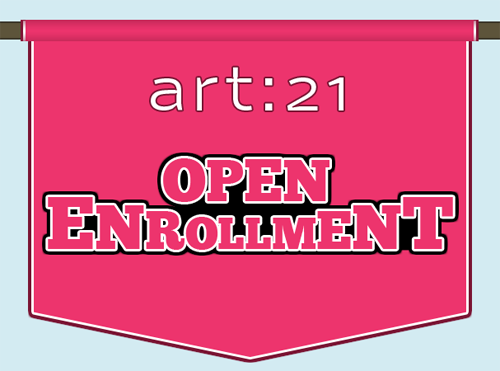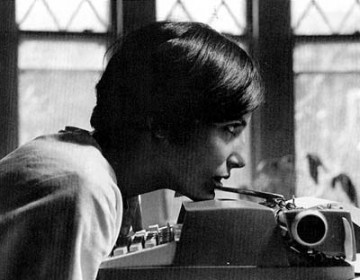Despite finally having access to a car this summer and thus becoming one step closer to the delights of Fort Tilden beach, I remained a sickly white shade that I like to refer to as “extreme English Rose” but, in truth, is more akin to “library pale.” For the first half of my so-called vacation, I taught summer school in order to take the second half of the holidays “off” to prepare for what is known in the Graduate Center Art History PhD Program as the First Exam. It’s a contradictory title because if, like me, you arrive without having taken a Comprehensive Exam during your MA then it’s actually your second exam, required before you get past 45 of the 60 credits of class work needed to propose and complete your dissertation. A colleague of mine on the program dropped his voice to a wonderfully theatrical whisper in the library a month ago to tell a group of us that the exam was dreamed up in the days when Rosalind Krauss taught at the Graduate Center, “in order to weed people out before they get to the stage of failing their orals.” Whether or not that’s legend, it’s true that no other Art History program in the city seems to have this step, moving straight to Orals from the Comps. Thus, it was this comforting thought that accompanied my final four weeks of revision: if I fail, it’s because Rosalind Krauss thinks I’m an idiot who should advance no further in this field.
The First Exam contains different material depending on your proposed area of specialization, but whether you’re a medievalist or a modernist, the mechanics are pretty much the same. Fifteen hundred slides and twenty seminal essays in the field to memorize. Come exam time, twenty of those slides will pop up on the screen (yes, that’s roughly 1% of the total slides you’ve committed to memory) and it’s your job to identify them and then contextualize the work broadly before specifically describing the significance of the particular work itself. After a ten minute break comes the fun part – essays! You chose two possible questions to respond to, synthesizing five texts you have read in one question and five more in another, no summaries allowed. “Excite me!” said our examiner as we began to scribble furiously. I don’t think it was just me who wanted to cry at that point. After four hours we left with instant carpal tunnel syndrome and passed out after one glass of celebratory wine praying we had made the 83% pass mark. Fail once and you have to take it again in January. Fail twice and you’re toast.
I went through several stages during my five weeks of preparation: excitement at the thought of attaining a comprehensive body of knowledge in my field; self-doubt as I tried to master the material; and then just sheer panic during the final ten days. I also felt something unexpected: anti-climactic disappointment. All my life, I’ve been the kid most people love to hate. I like the challenge of besting an exam, and I have a pretty photographic memory. But after weeks of seventeen hour days spent in the library trying to count the patches in Rothko paintings to differentiate them in order to memorize them, I began to ask myself what this exam, and thus by default my navel-gazing doctoral study of the Fine Arts as a whole, was really doing for the greater good. I hadn’t seen my boyfriend or cat awake in a long time, and I live with them. I forgot birthdays, forgot to eat, and forgot the names of my siblings. And even more depressingly, in the process of realizing that this exam felt more like a hoop to jump through than a meaningful rite of passage, I read an (excellent, arresting) article in the Chronicle of Higher Education by John Marsh, Why Education is not an Economic Panacea.
I’ve known for a while that when I graduate, I should expect to find myself in a wasteland with “tenure-track” a distant memory and underpaid adjunct positions for the rest of my life my only job prospect. However, this vignette has always been mediated by the fact that I felt I could make a difference teaching, especially in a system like CUNY where my students are a lot like me as an undergrad: first-generation to college, holding more than one job to pay the bills while studying, and open to change through committed professors. And then I read about Marsh’s involvement with the Odyssey Project at the University of Illinois at Urbana-Champaign, a program of free classes in the humanities for low-income individuals who wanted to jump start their ticket out of poverty and income inequality through higher education. After directing the program for five years, Marsh questions the common wisdom that social ills can be realistically mitigated through increasing access to higher education opportunities, that we can effectively “teach our way out of inequality.” He suggests we’ve put the cart before the horse, and should be encouraging the best economic outcomes for our students, not necessarily the “best” educational ones. While acknowledging that a college grad will still usually make more than those with only a high school diploma, he also suggests that “as it stands, we seek to decrease inequality and poverty by improving educational enrollment, performance, and attainment. A good deal of evidence, however, suggests that we should do just the opposite. Only by first decreasing inequality and poverty might we then improve educational outcomes.” Read the article and you’ll understand his nuanced assessment better than I have room for here, but it’s not a particularly rosy picture. Marsh writes as we prepare for a possible double-dip recession, experiencing the largest gap between rich and poor in history of this country, and while a clutch of dimwitted politicians and policy makers ridicule and spin Warren Buffet’s offer of tax assistance. Education is not the cure-all it is often touted as.
I breathed a sigh of relief a few days ago when I found out I passed. I really couldn’t have done it without the classmates I studied alongside, but as we all finally stepped back from the brink of a summer intensely spent, it wasn’t just me who wondered what the purpose of the exam could really be boiled down to. I originally chose a different word (yes, an expletive) for the title of this piece but decided “farewell” was probably more acceptable. It’s also a little more apt. Over the last month I think I’ve hit my “mid-PhD crisis” where I still love learning but have said goodbye to some of the ideas about learning that I originally started out with. Maybe it’s just post-exam fatigue, but John Marsh’s picture whittles away at my tenacity to become the teacher I thought could be. Can I really equip my students, all of whom deserve both educational and economic success, with the skills needed to achieve them through lessons in art history? Or is it time to think of a slightly changed career trajectory that might have a different, more provable application for them? To those of you in the field a little further ahead than I – any advice for me that might prove more useful than what I learned for my First Exam?
P.S. I apologize for the lack of images in this post. I just can’t deal with any more slides this month. It will be all pictures next month, I promise.





